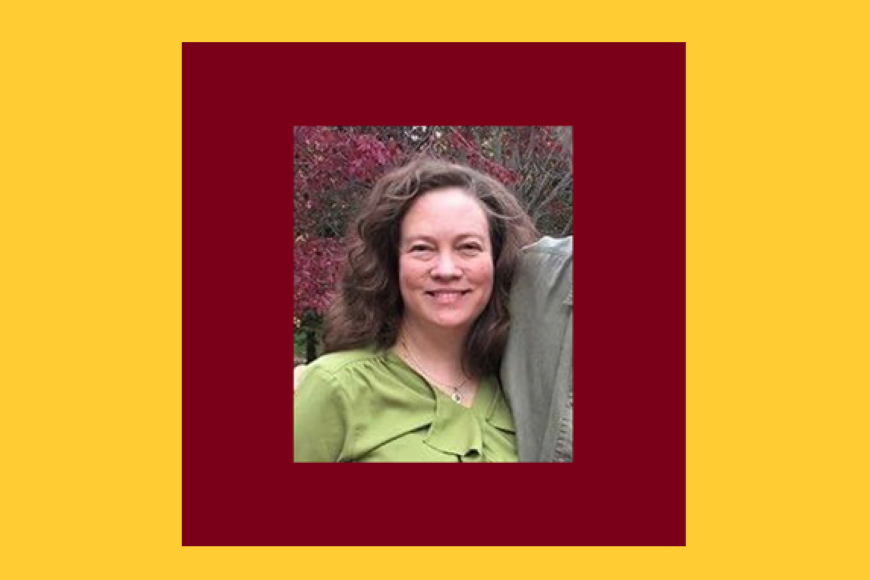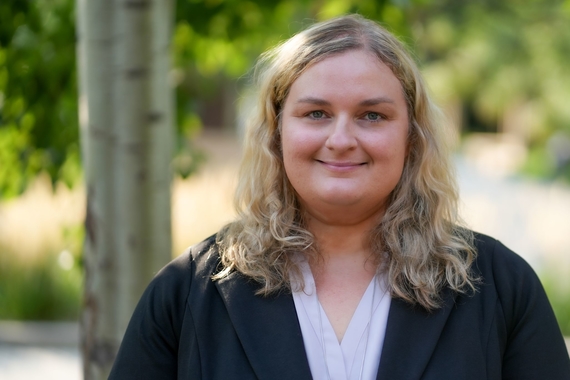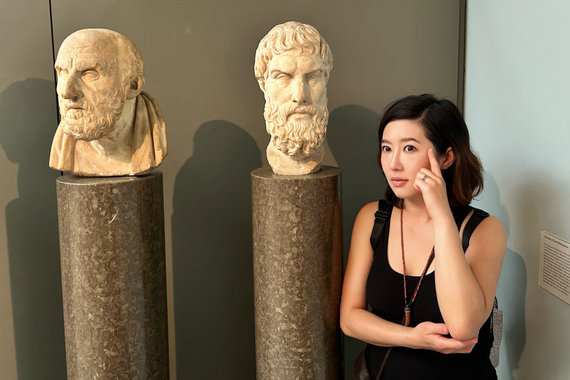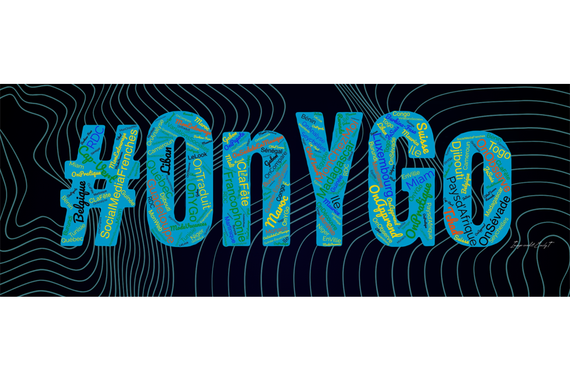Introducing Mary Gilchrist
Meet Mary Gilchrist, who has worked at the Language Center since 1994. Her current job title is Education Specialist, but what does she really do? In this interview, Mary highlights major aspects of her work and shares how she can help you tackle your next project.
Which parts of your current job description should ElsieTalk readers know about? Are there specific services or expertise you offer that readers could take advantage of more than they currently do?
Many students, advisors and instructors have questions about language testing and course placement and don't know where to start. There are lots of acronyms to navigate as well! EPT, LPE, LPE Screening, ILA, ACTFL, OPI, etc... For new members of our university community, and even for people who have been around for a while, it can be confusing. Which test do I need? When can I take it? What do my results mean? Which course should I take? Have my students met the prerequisites for my course? My colleagues and I can help you! Please contact us anytime at langtest@umn.edu and you will receive a prompt response. You may also find answers to your questions at languagetesting.umn.edu. If you need more help, just click on the "Contact Us'' link found at the top of every page of our website.
Can you briefly describe 2-3 projects you've worked on in the past year?
A big focus of mine for the last year (well, the last two years, actually) has been adjusting to remote/online testing. It has been challenging to learn about new technologies, potential barriers and troubleshooting techniques, etc., while also helping students and instructors navigate these changes and cope with the complications which sometimes arise. I had to learn how to use Zoom and other programs effectively in order to assist others, and even train people to use Zoom for testing OVER Zoom, which wasn't easy at the time! Now, we are returning to mostly in-person, on-campus testing, but some degree of remote testing seems to be here to stay, e.g., remote testing for language courses that are still delivered online, and the option of conducting oral interviews via Zoom for instructors and students who choose it.
What is an example of a project or request that falls outside the scope of your job? To whom would you refer people with such a request?
I sometimes receive inquiries from students who need certification of a higher level of proficiency for specific study abroad programs, scholarships or employment opportunities. Our office does assist students seeking a Certificate of Advanced-Level Proficiency from the University of Minnesota; the advanced certificate is currently available in Chinese, French, German and Spanish. Please see this page for details: https://languagetesting.umn.edu/actfl/certificate.
For students needing advanced-level testing in other languages or for other purposes, we typically refer them to Language Testing International (LTI), the official testing affiliate of the American Council on the Teaching of Foreign Languages (ACTFL). Students from outside the University of Minnesota who contact us about language proficiency testing are also commonly referred to LTI. These students are encouraged to communicate with the organization or program requesting the proficiency certification to be sure that the exams they take will meet their needs. More information about LTI can be found at https://www.languagetesting.com/.
What skills and competencies do you bring to your current job from your educational background, positions you have previously held in the Language Center, or from work and relationships with other units at this/other institutions?
I began my career at the University of Minnesota in 1992, earning a Master's degree in French in 1995. I have served as an instructor of Beginning and Intermediate French language courses at the U of M, a position I truly enjoyed. As a French instructor, I loved my interactions with my smart, lively and curious students! It is exciting to see how language education has been enhanced in recent years by the introduction of new technologies to language teaching and assessment, and the ability of language learners all over the world to connect with each other and to engage in authentic language experiences.
I have worked with the CLA Language Testing Program since 1994. In my current position as Education Specialist, I enjoy interacting with students, instructors and other members of the university community, responding to their requests for information and helping students complete language exams needed for course placement and fulfillment of the CLA second language requirement. I evaluate language proficiency exams in French and work closely with instructors who conduct oral proficiency interviews in French. I serve as the primary contact and testing coordinator for the Department of French & Italian (FRIT) and the Department of German, Nordic, Slavic & Dutch (GNSD), but I am happy to assist students and instructors of any language, to the best of my abilities.
Is there anything else you would like readers to know about you?
I have children with disabilities that have created academic barriers for them, and this experience has given me a lot of insight into the challenges that students with disabilities face at the university level. I am open to listening and learning, and doing whatever I can to assist students with disabilities who need help with language testing. I am also a first generation college graduate, and I'm hoping to connect with other first generation students, staff and faculty by participating more fully in the U of M's First-Gen Plus Community in the future.
On a personal level, I am passionate about ancient and medieval history, archeology and historical linguistics. I am very much a language nerd, who can’t resist looking up the etymology of words whenever curiosity strikes me!



